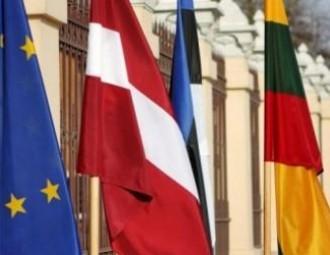Ulad Vialichka: It is hard to do something about economic interests of Baltic States

The reason for the policy of double standards which Latvia and Lithuania apply to Belarus lies not in the politics of the countries but in the situation created by Belarusan authorities themselves.
This opinion shared Ulad Vialichka, the chairperson of the International Consortium "EuroBelarus”. He highlighted that the authorities of the Baltic countries cannot ignore any of the contradicting questions – neither the national economic interests, nor the all-European politics in relation to the Belarusan regime.
According to him, it is these factors that determine Latvia’s and Lithuania’s current policy towards Belarus. And often temporary and situational factors play the decisive role there. Still, on the political field there have never been total domination of one interest upon the other and one can hardly expect that in the future, Ulad Vialichka believes.
“I think that everything will be going in the same vein that we witness now. Of course, situation can change in case the European Union or Belarus would radicalize their stances. But for now we don’t see any further escalation. That is why the attempts of Lithuania and Latvia to implement their economic interests without breaking principles according to which Europe builds its relations with Belarus are likely to be continued”, - emphasized Ulad Vialichka.
Among the main forces determining current interests of the Baltic States towards Belarus he named the governments of these countries who are interested in a certain level of mutually advantageous economic ties, as well as certain economic elite who are just lobbying their interests. The chairperson of the Consortium highlighted that one should show sympathetic understanding of Latvia’s and Lithuania’s actions whose economic cooperation with Belarus is one of the real sources to stabilize rather tough economic situation.
But is it possible that Belarusan authorities will get an opportunity to blackmail the neighboring countries, which was mentioned recently by the polish researcher Kamil Kłysiński in his article?
“However, Minsk doesn’t have that many political and economic opportunities to blackmail these countries because they make up the part of the European Union”, - Ulad Vialichka is convinced.
Talking about the possible help provided by the European Union to make the Baltic harbors independent, he noted that if this question is ever going to be decided, then it is most likely to happen at level of the relations between the EU and Eurasian customs area that is being formed around Russia. “I think that the EU looks for specific decisions and opportunities to optimize the potential losses of their countries-members in relations with the European Union. And it is in this scale that the question is being considered”.
The interlocutor noted that, however, ‘’it is really hard to do something with the economic interests of these countries”. Under the built economic relations and logistic ties the change of the situation can be achieved only over rather long time with lots of effort put in it.
“Perhaps, there is possibility of some subsidies and compensations. But allowing for the current economic situation in the EU, one can hardly say that it will be introduced in the near future”, - assumes Ulad Vialichka.
-
03.01
-
07.10
-
22.09
-
17.08
-
12.08
-
30.09








































